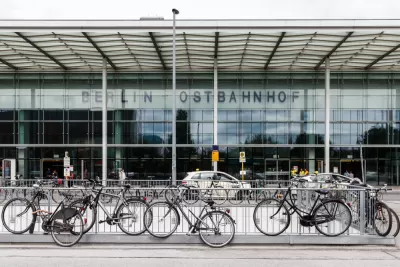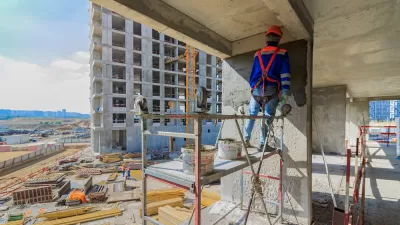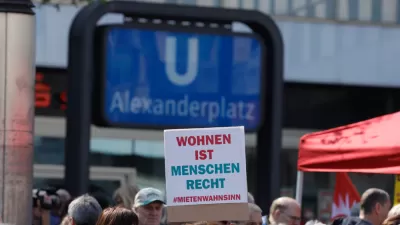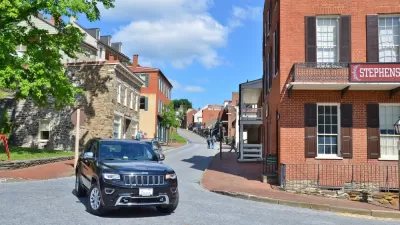The German capital could see a new system of cycle superhighways, an expanded bike lane network, and more by 2025.

Comprehensive new plans from Berlin's Green Party could dramatically expand and improve bike and pedestrian infrastructure throughout the city, Fergus O’Sullivan reports in CityLab. Should the plans pass, Berlin would gain 100 kilometers of segregated cycle superhighways on former rail corridors throughout the city. The existing bike lane network would also be expanded to cover one-third of all city streets, up from 18 percent. And on the roads, traffic lights would be adjusted to prioritize buses and streetcars.
Cycling accounts for less than 25 percent of Berlin's work commutes today, but O'Sullivan writes that the city's wide streets and sidewalks, and overall "rangy" layout, make it a good candidate to accept comprehensive bike infrastructure—adding, "If Berlin can’t push through real changes to make it one of the most bike-friendly cities in the world, it's hard to see how anywhere else could."
FULL STORY: Berlin's Upcoming Bike Revolution

Maui's Vacation Rental Debate Turns Ugly
Verbal attacks, misinformation campaigns and fistfights plague a high-stakes debate to convert thousands of vacation rentals into long-term housing.

Planetizen Federal Action Tracker
A weekly monitor of how Trump’s orders and actions are impacting planners and planning in America.

Chicago’s Ghost Rails
Just beneath the surface of the modern city lie the remnants of its expansive early 20th-century streetcar system.

Bend, Oregon Zoning Reforms Prioritize Small-Scale Housing
The city altered its zoning code to allow multi-family housing and eliminated parking mandates citywide.

Amtrak Cutting Jobs, Funding to High-Speed Rail
The agency plans to cut 10 percent of its workforce and has confirmed it will not fund new high-speed rail projects.

LA Denies Basic Services to Unhoused Residents
The city has repeatedly failed to respond to requests for trash pickup at encampment sites, and eliminated a program that provided mobile showers and toilets.
Urban Design for Planners 1: Software Tools
This six-course series explores essential urban design concepts using open source software and equips planners with the tools they need to participate fully in the urban design process.
Planning for Universal Design
Learn the tools for implementing Universal Design in planning regulations.
planning NEXT
Appalachian Highlands Housing Partners
Mpact (founded as Rail~Volution)
City of Camden Redevelopment Agency
City of Astoria
City of Portland
City of Laramie





























